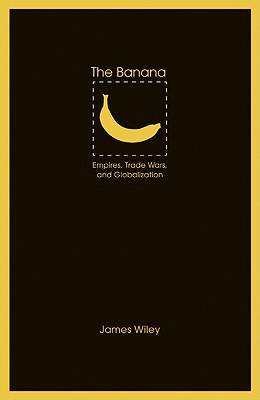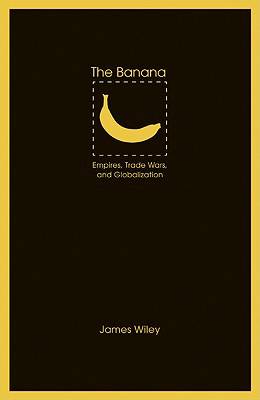
- Afhalen na 1 uur in een winkel met voorraad
- Gratis thuislevering in België vanaf € 30
- Ruim aanbod met 7 miljoen producten
- Afhalen na 1 uur in een winkel met voorraad
- Gratis thuislevering in België vanaf € 30
- Ruim aanbod met 7 miljoen producten
Zoeken
€ 45,95
+ 91 punten
Omschrijving
The banana is the world's most important fresh fruit commodity. Little more than a century old, the global banana industry began in the late 1880s as a result of technological advances such as refrigerated shipping, which facilitated the transportation of this highly perishable good to distant markets. Since its inception the banana industry has been fraught with controversy, exhibiting many of the issues underlying the basic global economic relations that first emerged in the era of European colonialism. Perhaps more than any other agricultural product, the banana reflects the evolution of the world economy. At each stage changes in the global economy manifested themselves in the economic geography of banana production and trade. This remains true today as neoliberal imperatives drive the globalization process and mandate freer trade, influencing the patterns of the transatlantic banana trade. The Banana demystifies the banana trade and its path toward globalization. It reviews interregional relationships in the industry and the changing institutional framework governing global trade and assesses the roles of such major players as the European Union and the World Trade Organization. It also analyzes the forces driving today's economy, such as the competitiveness imperative, diversification processes, and niche market strategies. Its final chapter suggests how the outcome of the recent banana war will affect bananas and trade in other commodities sectors as well. The Banana belies the common perception of globalization as a monolithic and irresistible force and reveals instead various efforts to resist or modify the process at local and national levels. Nevertheless, the banana does represent another step toward a globalized and industrialized agricultural economy.
Specificaties
Betrokkenen
- Auteur(s):
- Uitgeverij:
Inhoud
- Aantal bladzijden:
- 316
- Taal:
- Engels
- Reeks:
Eigenschappen
- Productcode (EAN):
- 9780803232853
- Verschijningsdatum:
- 1/01/2010
- Uitvoering:
- Paperback
- Formaat:
- Trade paperback (VS)
- Afmetingen:
- 152 mm x 229 mm
- Gewicht:
- 462 g

Alleen bij Standaard Boekhandel
+ 91 punten op je klantenkaart van Standaard Boekhandel
Beoordelingen
We publiceren alleen reviews die voldoen aan de voorwaarden voor reviews. Bekijk onze voorwaarden voor reviews.











